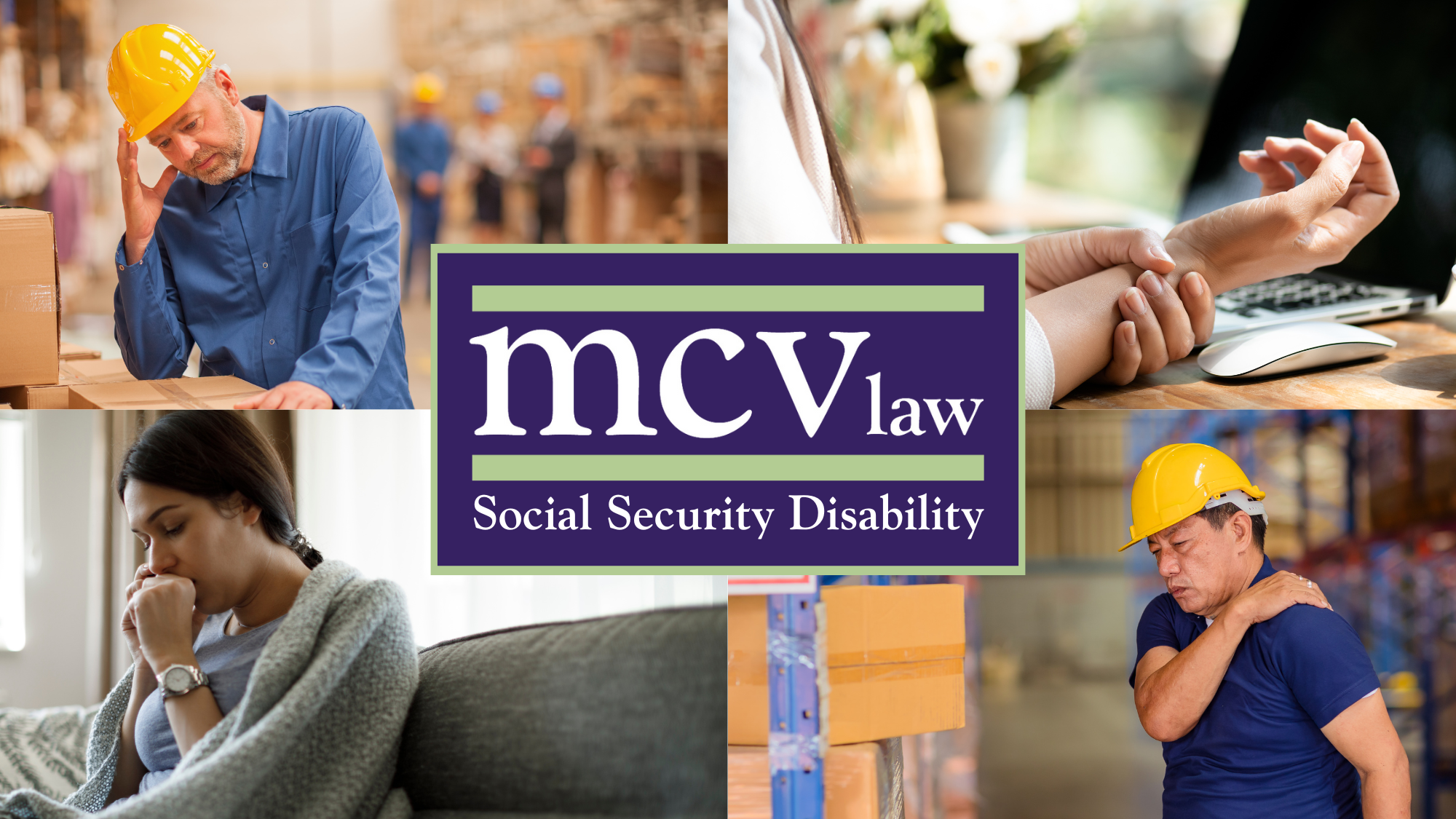
MCV Law represents clients from around the country in Social Security Disability hearings. We can protect your rights, help you strategize, and give you the best possible chance of having your SSD claim approved.
Schedule Your Free Consultation
What Happens at a Social Security Disability Hearing?
Once you have been denied for disability twice, the last level of appeal is requesting a hearing before an Administrative Law Judge.
How are Hearings held?
Before the pandemic, most hearings were held in person, before an administrative law judge (ALJ) at a local SSA hearing office. Since the pandemic, all hearings have been conducted by phone.
Recently, SSA has offered claimants the option of having a video hearing using the Microsoft Teams platform. You still have the right to request an in-person hearing, but SSA has given no guidance on when they plan to restart in-person hearings.
If you opt for a phone hearing, you should be in a quiet place where you will not be interrupted or have noisy distractions. You should wait until a question is fully presented before you answer. The judges' clerk will call you for your hearing, then conference in the Judge and the Vocational Expert the judge has noticed in your case.
If you opt for a video hearing, you should check ahead of time that you have an adequate internet connection on a reliable device before agreeing to a video hearing. Once scheduled, you will be sent an email link by the hearing office for your hearing. Like a phone hearing, make sure you are in a quiet spot so you and the other participants are not distracted by background noise or interruptions.
At the beginning of the proceedings, the Judge will swear in both you and the Vocational and/or Medical expert.
"In seeking legal representation for guidance and support in the process of applying for Social Security disability, I contacted MCV law. My initial information was given to the disability lawyer who promptly contacted me to set up an appointment. I met with Karen Menter Lowe, she answered all my questions and concerns and put me at ease throughout the process. My lawyer was thorough and highly knowledgeable and always there to answer any questions I had. I have to say that I received processional and excellent representation with a very positive outcome. I highly recommend this law firm."
- Denise R, a satisfied MCV Law Social Security Disability client
What Questions Will Be Asked?
Not every ALJ follows the same format for their hearings, but the topics covered are the same. The ALJ may begin by asking a lot of questions or only with a discussion of your past jobs. You should describe your duties, whether you managed other employees, what the physical requirements of the job were, and why you left the job. The purpose of this is to allow the ALJ to classify your past work so that he or she can determine if you can do your old job or if you are qualified for any other work. Once the ALJ completes their questions, they will allow your attorney to ask specific questions about your disability, including your medical treatment, why you cannot work, and how your condition affects your ability to function on a daily basis.
After your attorney questions you, the ALJ may or may not have further questions.
What is the role of a Vocational Expert?
Once the ALJ has finished questioning you, the ALJ and your attorney will pose a series of questions (called hypotheticals) to the vocational expert (VE). The role of the VE is to provide the ALJ with an opinion as to what jobs you can perform despite your limitations.
The ALJ will ask the VE whether he or she thinks you can do your past work based on the testimony you have given about your condition. If the VE says you cannot do your old job, the ALJ will ask more questions about how your documented limitations affect your ability to work. Once the ALJ has finished questioning the VE, your attorney will have a chance to ask the VE follow-up questions if necessary.
At the end of the hearing, the ALJ will ask if you would like to add anything. Although it isn’t required, it may be helpful to explain in your own words why you don’t think you can work. However, the ALJ will not hold it against you if you choose not to say anything.
If you have a social security hearing coming up, you may want to consider talking to a disability lawyer.
At MCV Law, we help our clients at every level of their case. We meet with each client to set a strategy for their case. We request and submit all relevant evidence well in advance of your hearing. We also meet with our clients before their hearing to go over the medical evidence and their testimony so they know what to expect at their hearing.



